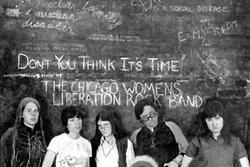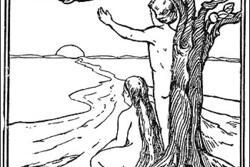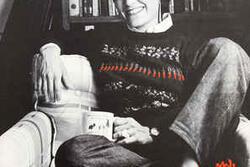First, Unity
Mural of South African civil rights activist Ruth First by Ben Slow in Orlando East Soweto Johannesburg
Photo by Derek Smith. From Wikimedia Commons.
The South African government felt threatened by one woman’s mere presence in the world. Even while living 1,200 miles and another country away from Cape Town, Ruth First’s political activism and expository writing intimidated the South African government; so much so that, while she was living and fighting freely in Mozambique, South African security agents sent her a letter bomb. She died as a result of it on August 17, 1982. Although her life was cut short, the devotion and boldness with which she approached her work should serve as a model for activism today.
Born to Jewish immigrants on May 4, 1925 in Johannesburg, South Africa, Ruth First was a witness to the horrors of South Africa’s racial caste system. Diving into investigative journalism after graduating from university, she used her writing to expose apartheid as it affected black South Africans in every facet of their lives. Ruth First didn’t stop there in her activism. She created close ties to South Africa’s Communist Party and its African National Congress. The government subjected Ruth First to increasing restrictions during the 1960s because of her involvement.
After being thrown into solitary confinement for 90 days under South Africa’s 90-Day Act under no concrete charges and without access to a lawyer, Ruth First had no choice but to flee the country in 1964. Yet, though the South African government forced Ruth First into exile, her involvement in anti-apartheid politics only intensified. She continued to publish books and pamphlets exposing the world to the evils of apartheid up until her assassination. The imprint she left on the anti-apartheid movement through the alliances she forged was felt for decades.
Ruth First's work exemplified the allyship that remains vital to contemporary activism. She was not directly harmed by apartheid and was, in fact, a direct beneficiary of it as a white person. Yet, she fought tirelessly for its dismantling, partnering with people of all racial and ethnic backgrounds and creating a branch of the Congress Alliance, a political coalition that united South Africans of all races, to end the oppression that besieged many of her neighbors.
Her efforts should today be translated to countless modern movements where solidarity and allyship are crucial tools. Today, systems of oppression, while not always as explicitly apparent as apartheid, can be seen in all walks of life. Following in Ruth First’s path, we must advocate for interests other than our own in the face of oppression. The most successful mobilizations in history have occurred when people of all races, religions, sexual orientations, and genders backed each other.
Within the contemporary Jewish community, calls for solidarity have recently been challenged. A year ago, I sat through my synagogue’s monthly board meeting, watching as a debate ensued about whether my temple should officially sponsor a group to go to the third annual Women’s March. With recent allegations of antisemitism within the organization, Jews throughout the country were sparring over whether to continue to support the movement.
To me, the answer was clear. The purpose of the Women’s March is to create a coalition of diverse communities that will fight to uphold the rights of all people. To back down amidst claims of antisemitism, when the leaders have acknowledged a need for continued growth within the movement, threatens our collaborative strength, allowing oppression to win out.
Just as Ruth First did, we must prioritize maintaining a united, intersectional movement. But that doesn’t mean we should ignore the presence of antisemitism. Rather, by engaging in dialogue, asking questions, and growing our presence in the movement, we can hold onto a seat at the table and have a say in the future of the Women’s March, and in the fight to build a more equitable society.
In its intersectionality, the Women’s March strives to advocate for the rights of all people, and so must we. As headlines increasingly fill with reports of antisemitic attacks, the Jewish community has received support from a coalition of diverse voices. We must reciprocate this outreach by working in solidarity with people experiencing other forms of oppression and follow in Ruth First’s footsteps.
This piece was written as part of JWA’s Rising Voices Fellowship.






